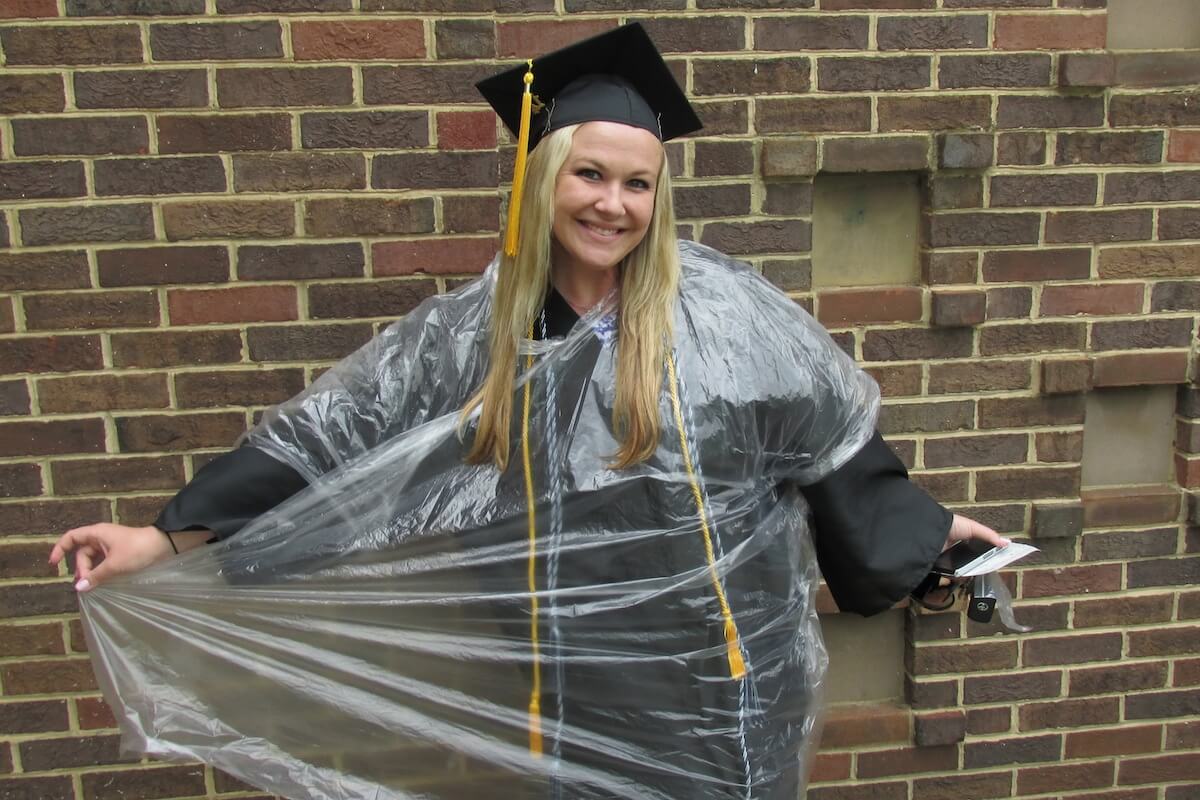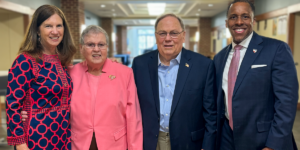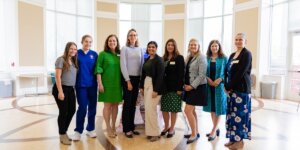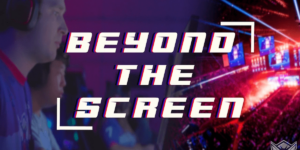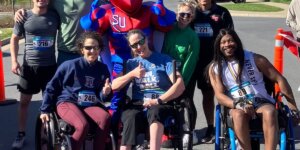Julie Patterson ‘14 knew she wanted to share her story. The psychology major and criminal justice minor had only one semester at Shenandoah under her belt, but felt it was time to open up to fellow classmates and professors.
“I wasn’t sure if I should put myself out there or not,” said Patterson. “But the reality is that this is who I am, and if someone judges me for it, I don’t want them in my life. As a psychology student, I knew that other psychology students would appreciate it on a different level, because they may know more about addiction in general from studying it.”
Patterson, who completed her associate’s degree at Lord Fairfax Community College in 2012, came to Shenandoah to earn her four-year degree and continue her success in the academic arena. She did just that, graduating with a 4.0, serving as the vice president for the Psychology Club and winning the 2014 Psychology Award.
But a degree wasn’t always in the cards for Patterson, who struggled with drug addiction from an early age. After attempts at recovery, relapses and a wake-up call in 2008, she knew it was time for a permanent change.
“I finally made a decision that I wanted to try and get clean, so I ended up moving to Winchester and went to Edgehill Recovery Center,” said Patterson. “I completed the program, and I haven’t found it necessary to use since. There is a saying that we learn when we get clean and we’re in recovery, that ‘lost dreams awaken and new possibilities arise,’ and that’s what happened for me.”
Through her work with the Psychology Club, Patterson created a series of Addiction and Recovery panels, where individuals in recovery shared their stories to educate campus community members about the perils of addiction and what’s involved in the recovery process. At the first panel, Patterson stepped out of her comfort zone and shared her own testimony.
“Afterward, there was that initial fear of wondering what people were going to think about me,” said Patterson. “Are they going to see me differently? Are they going to treat me differently? But all of my professors came up to me and gave me hugs. Students who I didn’t even know came up to give me hugs, said they were so glad, they attended the panel and thanked me for sharing my story. At that point, I just broke down crying. I felt so grateful for another chance and every day that I get. I didn’t have that before, and there’s a freedom that comes with that.”
Her second chance includes enjoying time with a new baby girl born in March and planning a summer wedding with her fiance. Patterson plans to take some time off before tackling a mental health counseling graduate school program. Eventually, she’d like to have a career in counseling.
“I’ve always been fascinated with watching and being involved with people,” said Patterson. “One of the things that I’ve enjoyed so much and been blessed with is that I’ve had the opportunity to help other people, who are addicts, learn how to stay clean. I’ve watched other addicts and the change that happens when they give themselves a chance at life. I’ve been able to be a part of their journey, and I’m very passionate about it.”
Patterson credits the dynamic and diverse psychology faculty at Shenandoah for imparting skills and strategies to utilize in the real world, and says that she’s enjoyed soaking up all avenues of psychology throughout the past two years.
“All of the professors care about their students and are completely genuine. I believe that I’ve built relationships with all of them, and they have really helped me to grow, not only as a student but as an individual.”
Patterson worked closely with Associate Professor of Psychology Scott King, Ph.D., for her research project on individuals’ use of social media, titled “The Social Disconnection: Is Social Media Use Related to Narcissism and Problems with Interpersonal Skills?” The project tied for first place as the best individual project award at the 2014 Shenandoah University Projects & Research (SUpr) Summit.
And, she credits Associate Professor of Psychology Rodney Bragdon, Ph.D., and his clinical helping skills class for inspiring her to pursue the clinical route.
“It is a unique class that is constructed of five different mock videos where we took turns playing the role of doctor and patient,” said Patterson. “Having the camera on you when you’re trying to implement the skills you’ve learned in a natural way and learn to be comfortable in that type of setting actually turned out to be pretty uncomfortable. However, I did find that as the exercises went on and we got further into the semester, I very much enjoyed it.”
Ultimately, Patterson’s road to success has been paved with the support of friends and family as well as fellow students and faculty members at Shenandoah University.
“I came here to Winchester pretty broken and hopeless,” she said. “I struggled with self-worth and a sense of self-esteem and confidence. I never felt good enough. But I’ve been able to build confidence in myself and my abilities, and I can take the personal growth I’ve gained to feel worthy, smart and good enough. I can contribute. I feel respected. I feel that I can succeed and keep high grades. Shenandoah has given me that confidence to approach life and work hard for what I want.”
